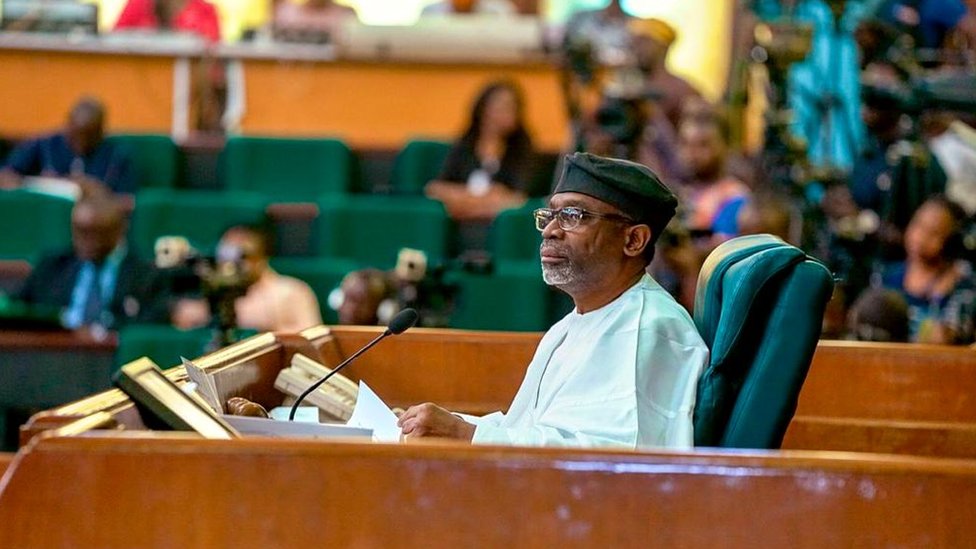The House of Representatives has ordered full investigations into the importation of adulterated fuel, also known as Premium Motor Spirit (PMS) into Nigeria.
The house also summoned the Group Managing Director (GMD) of the Nigeria National Petroleum Corporation (NNPC) Ltd., Mr Melee Kyari and the four companies involved in the importation.
The resolution followed the adoption of a motion of urgent public importance by Rep. Mohammed Mongunu, the Chief Whip of the house on Thursday in Abuja.
In his motion, he noted that the country recently witnessed scarcity of fuel in petroleum stations especially in the Federal Capital Territory and Lagos State.
Read Also: 2 police officers, 2 civilians killed as robbers attack bullion van in Ibadan
He said that according to reports, the scarcity was as a report of alleged adulterated petrol in circulation.
He said quality of the fuel was noticed about a week ago, when many car engines of motorists were reportedly damaged, and consumers had already started suing retail outlets for selling them adulterated fuel.
“Nigeria is known to be a petroleum-producing country. As a result of either our actions or inactions over the years, we have now outsourced the refining of petroleum products to jurisdictions outside Nigeria.
“At such, it behoves on us as a country to closely monitor the quality of petroleum products that is being imported in the country.
Kyari had said MRS, Oando, Emadeb Consortium, and Duke Oil, a subsidiary of the NNPC, imported the methanol-blended petrol.
The house, therefore, asked the NNPC to provide the names of the companies to its committee for investigation.
The investigation will cover roles played by the NNPC Ltd, the Nigeria Customs Service, Standards Organisation of Nigeria, and other agencies responsible for overseeing importation and dispensing of fuel.
Rep Abubakar Nalaraba (APC-Nasarawa) in his contribution to the motion, said it was unfortunate that Nigeria would spend such amount of money on fuel importation and would end up importing adulterated fuel.
Rep Taiwo Oluga (APC-Osun) called for immediate summon of the NNPC, adding that what the corporation did was unacceptable.
He said the GMD should be summoned to explain why it would be gambling with the lives of Nigerians.
“It is a shame that we will be producing the crude and they will be importing adulterated fuel, the NNPC should be invited to come to plenary to explain to the house, what is wrong and not the committee.
Rep. Ahmed Wase, the Deputy Speaker of the house who presided over the plenary however, objected to the NNPC appearing at the plenary.
He said the house should have confidence in its committee, adding that they should be made to appear before the committee and not before the whole house at plenary.
Rep. Tajudeen Yusuf (PDP-Kogi) stated that those who used the fuel everyday such as taxi drivers and others, were being unnecessarily punished, adding that there should be a deliberate effort to assuage their feelings
Rep. Chinedu Ogah (APC-Ebonyi) in his support for the motion. noted that there should be an investigation of the agencies saddled with the responsibility of ensuring that fuel was being certified before it was taken to end users.
Rep. AbdulGaniyu Johnson (APC-Lagos) said it was time to revisit the concept of ease of doing business in Nigeria, adding that various regulatory bodies should be allowed to do their work.
Rep Onofiok Luke (PDP-Akwa-Ibon) in his contribution, said Nigeria as a whole had been bedeviled with various challenges and this adulterated fuel was adding additional burden.
“I have had so many who have called me about their engine packing up and their cars malfunctioning because of the adulterated fuel imported into the country.
“We must be able to get the people to be accountable in the offices they hold. There are inspections at the point of loading, who are the people responsible, are they performing their responsibilities,” he asked.
According to him, if the NNPC has come out to say that there is something wrong then it is no longer an allegation. It is a confession, and we must take it from there.
The investigation is to know the quality of petroleum products imported and whether importation, distribution and dispensing of the toxic fuel meet international standards.

